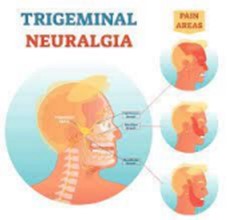When caring for the client hospitalized with tetanus, which of the following will the nurse include in the care plan?
Educate about the importance of proper food handling
Offer food at least 4 times a day
Anticipate administration of opioids
Provide distraction activities
The Correct Answer is C
Choice A Rationale: Educating about the importance of proper food handling is important for preventing foodborne illnesses but is not specific to the care of a client with tetanus.
Choice B Rationale: Offering food at least 4 times a day may be necessary for maintaining nutritional support, but it does not address the specific care needs of a client with tetanus.
Choice C Rationale: Anticipating administration of opioids is an important component of the care plan for tetanus. Opioids can help manage muscle spasms and severe pain associated with tetanus.
Choice D Rationale: Providing distraction activities may be beneficial for clients with tetanus to help divert their attention from muscle spasms and discomfort, but it is not the primary intervention.
Nursing Test Bank
Naxlex Comprehensive Predictor Exams
Related Questions
Correct Answer is D
Explanation
Choice A Rationale: Linking the pain to nasal stuffiness is not an accurate explanation of trigeminal neuralgia.
Choice B Rationale: Hypoglycemia is not typically related to trigeminal neuralgia.
Choice C Rationale: Releasing catecholamines with infection or stress is not the primary cause of trigeminal neuralgia.
Choice D Rationale: Pain is often due to stimulation of the affected nerve by pressure and temperature. This is a more accurate and relevant explanation for trigeminal neuralgia.

Correct Answer is C
Explanation
Choice A Rationale: Urinary output is also an important assessment in clients with a C3 spinal cord injury because it helps monitor for urinary retention and potential complications but it is not a priority compared to assessing the respiratory function of this client.
Choice B Rationale: Blood pressure is important to monitor but may not be the top priority assessment in this context.
Choice C Rationale: The nurse should prioritize counting respirations for a client with a C3 spinal cord injury, as this level of injury affects the phrenic nerve that innervates the diaphragm. The client may have difficulty breathing and require mechanical ventilation.
Choice D Rationale: Bowel sounds are important but may not be the priority assessment in this case.
Whether you are a student looking to ace your exams or a practicing nurse seeking to enhance your expertise , our nursing education contents will empower you with the confidence and competence to make a difference in the lives of patients and become a respected leader in the healthcare field.
Visit Naxlex, invest in your future and unlock endless possibilities with our unparalleled nursing education contents today
Report Wrong Answer on the Current Question
Do you disagree with the answer? If yes, what is your expected answer? Explain.
Kindly be descriptive with the issue you are facing.
